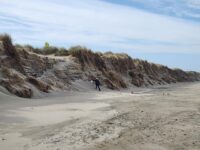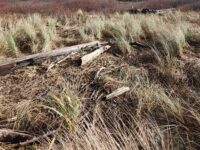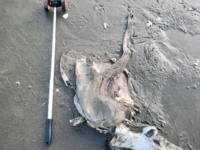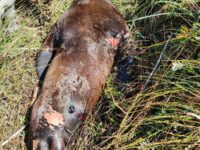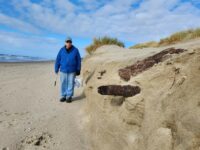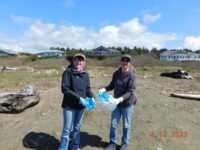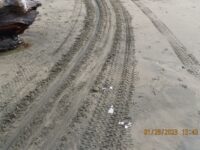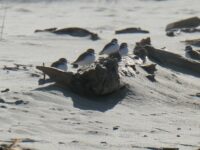Mile 203 Report
Driftwood Beach south, Hidden Lake
July 18, 2022
I walked Sandpiper Beach to Buckley Creek this morning looking for Snowy Plovers, but I saw no sign of plovers or even tracks.
Report Details
I walked Sandpiper Beach to Buckley Creek this morning looking for Snowy Plovers, but I saw no sign of plovers or even tracks. As I came onto the beach, I saw vultures feeding on something which, as I approached, turned out to be a dead Harbor Seal pup. I took photos to send to the Marine Mammal Stranding Network and continued up the beach. As I returned and was leaving the beach, I talked with someone who said they had just seen a coyote at the carcass, which seemed pretty unusual for the daytime, so I waited awhile back in the vegetation. In a few minutes, a coyote came out of the seasonal dunes just north of me, trotted to the carcass and began feeding, jerking and tearing on the carcass and dragging it around. I watched for maybe ten minutes until the coyote finally trotted off up the beach and into the seasonal dunes. Attached are a few photos, and below are Dropbox links to three short videos, not Top Gun quality but an exciting day on the beach and a reminder to people, especially with young children and small dogs, that we share our beaches with coyotes and other wild things. I originally thought the coyote was just scavenging the carcass, but looking back on it, I think the coyote may have actually preyed upon the seal pup. The carcass looked well fed, not at all emaciated, and there were no signs of trauma except for the head region, which would seem like a good spot for a coyote to attack a resting seal pup.https://www.dropbox.com/s/kxskbs2r69u1sia/DSCN2541.mp4?dl=0https://www.dropbox.com/s/aufrksjz0lie6sx/DSCN2545.mp4?dl=0https://www.dropbox.com/s/hucccskhtst7pb6/DSCN2546.mp4?dl=0
Conditions
Temperature: 65 F. Cloud Cover: Sunny. Wind Velocity: Calm/Light. Wind Direction: NW. Tide Level: 1.0 feet.
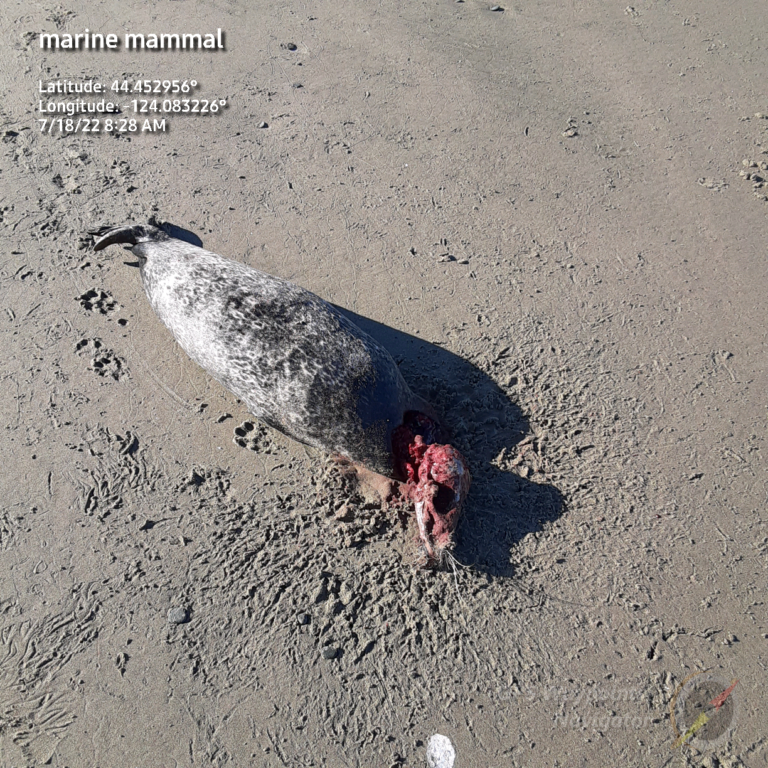
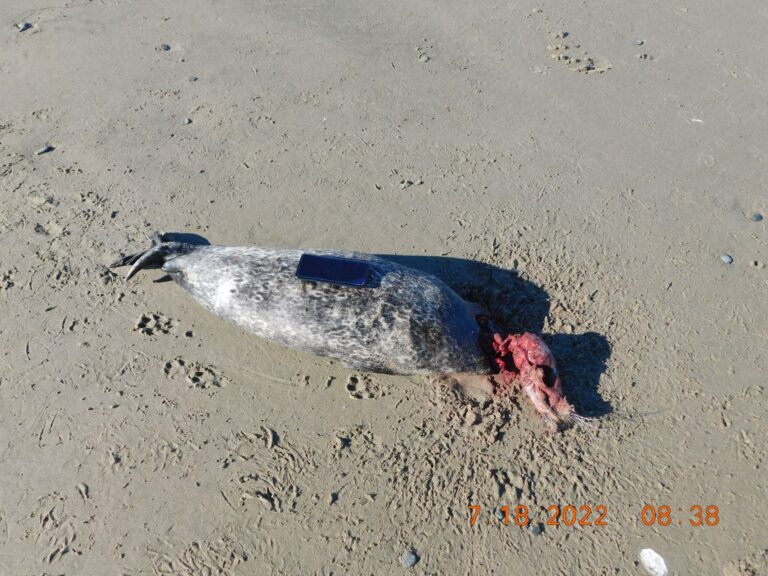
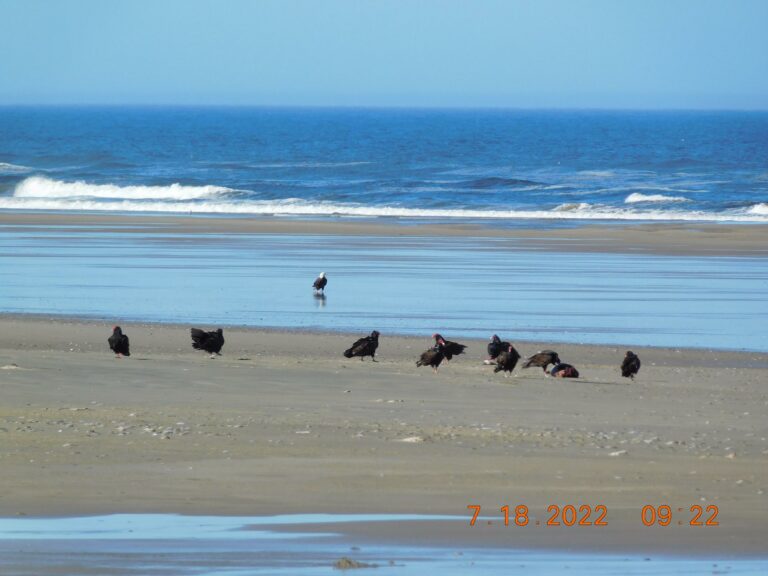
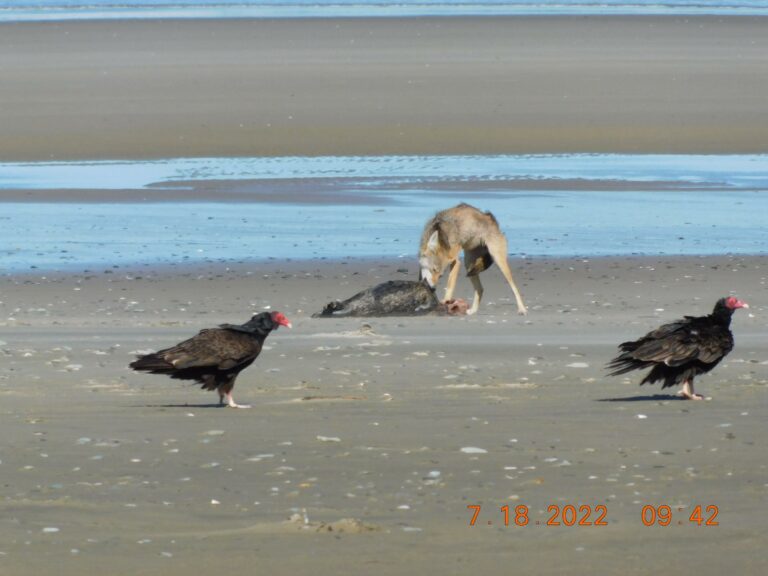
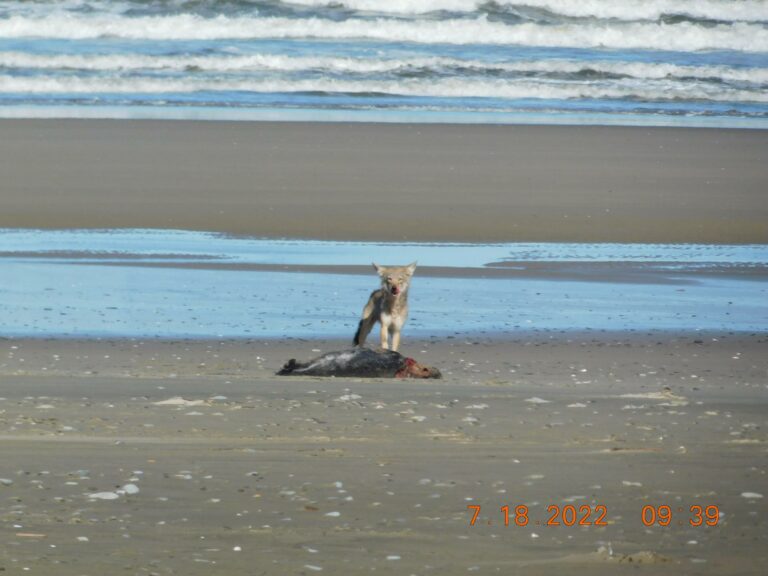
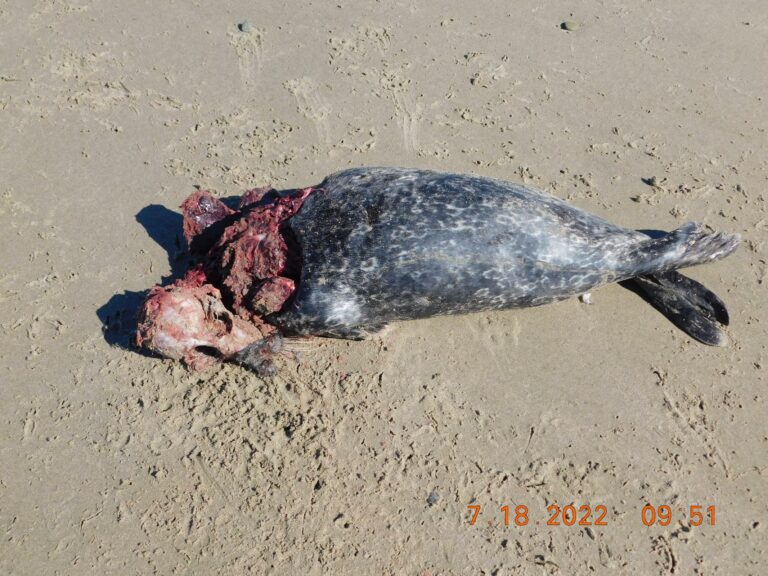
Report Images
All Mile 203 Reports
Mile 203
Driftwood Beach south, Hidden Lake
We found 7 lbs 12 oz of marine and ocean debris on the beaches in the wrackline area. The north and south ends of mile 203 show evidence of substantial wave erosion of the dunes.
Jeff Hildreth
Mile 203
Driftwood Beach south, Hidden Lake
The beach has had substantial washing away of old dunes and washing up of beach grass into the dunes. There were 45 bird carcasses of we believe are Cassin's auklets.
Jeff Hildreth
Mile 203
Driftwood Beach south, Hidden Lake
Today I and my two CoastWatch partners conducted a NOAA Marine Debris survey on our 100 meter survey site at Sandpiper Beach, Mile 203. On reaching our marine debris survey site, we saw a lot of Cassin's Auklet carcasses, which COASST calls CAAU, all high up on the beach among the beach vegetation and washed-in sea grass, many carcasses partially covered by sand or vegetation. After we completed our debris survey, I returned to our survey site and began collecting CAAU carcasses in groups of 9, as COASST recommends, ultimately collecting 40 carcasses in 4 full and 1 partial grouping. Below is a link to our Sandpiper Beach NOAA debris survey site where most CAAUs were found, reached by a boardwalk that enters the beach midway in the debris survey site. COASST defines a "wreck" as more than 20 beached individuals of one species per kilometer, and a "MME" (Massive Mortality Event) as a spike of up to hundreds of carcasses per kilometer. We also found a beached Northern Fulmar and what is I believe was either a female Gadwall or White-winged Scoter, which I took note of but didn't measure or report on to COASST. I submitted documentation with photos of the CAAU beaching event to COASST, and COASST responded that they had received reports of CAAU beachings from Southern Oregon sites like Coquille Point and Cape Blanco but also as far north as Manzanita. All this sounds very dry, but it was really sad to see and handle all these beautiful little dead birds and wonder if this is completely natural or if climate change, and perhaps a decline of prey species making these birds more vulnerable, factors into these mortality events. https://mdmap.
Jon French
Mile 203
Driftwood Beach south, Hidden Lake
The storms and rain caused some beach washout from the ocean and from the land.
JLcoasties
Mile 203
Driftwood Beach south, Hidden Lake
The dunes have reappeared due to the spring winds.
JLcoasties
Mile 203
Driftwood Beach south, Hidden Lake
Last year at this time, Jesse Jones helped us set up a 100 meter NOAA marine debris survey site on Mile 204, which we later moved to Sandpiper Beach on Mile 203.
Jon French
Mile 203
Driftwood Beach south, Hidden Lake
It was a beautiful day for a walk.
Nancy Thomas
Mile 203
Driftwood Beach south, Hidden Lake
After observing 8 snowy plovers on Mile 200 yesterday, I wanted to check up on the plovers on Mile 203.
KFunk

